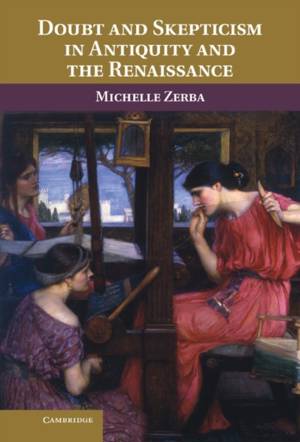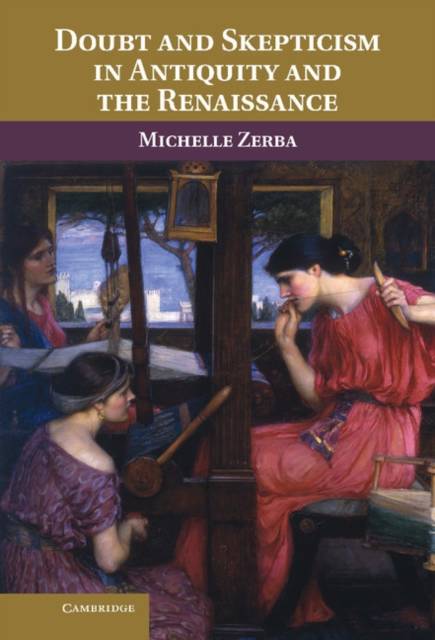
Bedankt voor het vertrouwen het afgelopen jaar! Om jou te bedanken bieden we GRATIS verzending (in België) aan op alles gedurende de hele maand januari.
- Afhalen na 1 uur in een winkel met voorraad
- In januari gratis thuislevering in België
- Ruim aanbod met 7 miljoen producten
Bedankt voor het vertrouwen het afgelopen jaar! Om jou te bedanken bieden we GRATIS verzending (in België) aan op alles gedurende de hele maand januari.
- Afhalen na 1 uur in een winkel met voorraad
- In januari gratis thuislevering in België
- Ruim aanbod met 7 miljoen producten
Zoeken
€ 183,45
+ 366 punten
Omschrijving
This book is an interdisciplinary study of the forms and uses of doubt in works by Homer, Sophocles, Aristophanes, Cicero, Machiavelli, Shakespeare, and Montaigne. Based on close analysis of literary and philosophical texts by these important authors, Michelle Zerba argues that doubt is a defining experience in antiquity and the Renaissance, one that constantly challenges the limits of thought and representation. The wide-ranging discussion considers issues that run the gamut from tragic loss to comic bombast, from psychological collapse to skeptical dexterity, and from solitary reflection to political improvisation in civic contexts and puts Greek and Roman treatments of doubt into dialogue not only with sixteenth-century texts, but with contemporary works as well. Using the past to engage questions of vital concern to our time, Zerba demonstrates that although doubt sometimes has destructive consequences, it can also be conducive to tolerance, discovery, and conversation across sociopolitical boundaries.
Specificaties
Betrokkenen
- Auteur(s):
- Uitgeverij:
Inhoud
- Aantal bladzijden:
- 272
- Taal:
- Engels
Eigenschappen
- Productcode (EAN):
- 9781107024656
- Verschijningsdatum:
- 9/07/2012
- Uitvoering:
- Hardcover
- Formaat:
- Genaaid
- Afmetingen:
- 160 mm x 229 mm
- Gewicht:
- 521 g

Alleen bij Standaard Boekhandel
+ 366 punten op je klantenkaart van Standaard Boekhandel
Beoordelingen
We publiceren alleen reviews die voldoen aan de voorwaarden voor reviews. Bekijk onze voorwaarden voor reviews.









